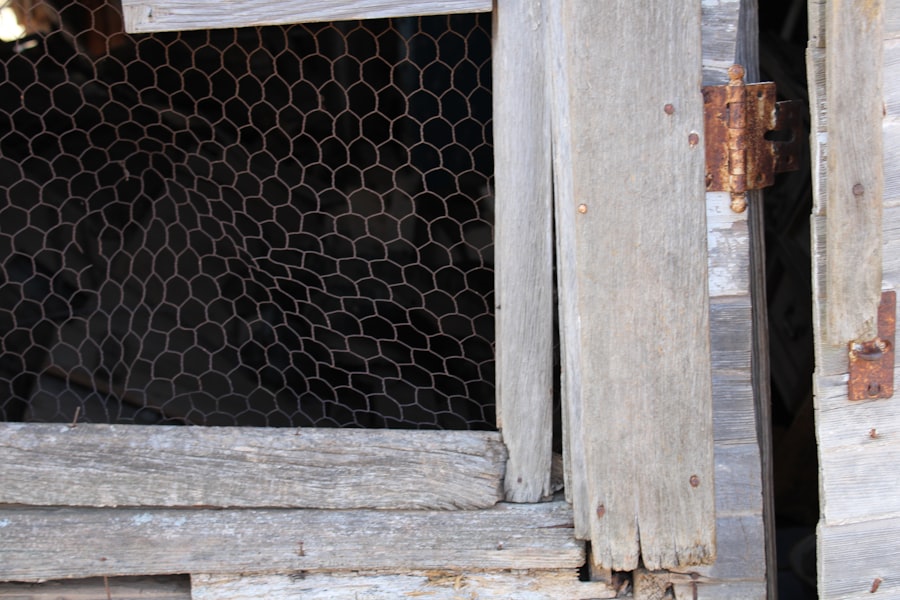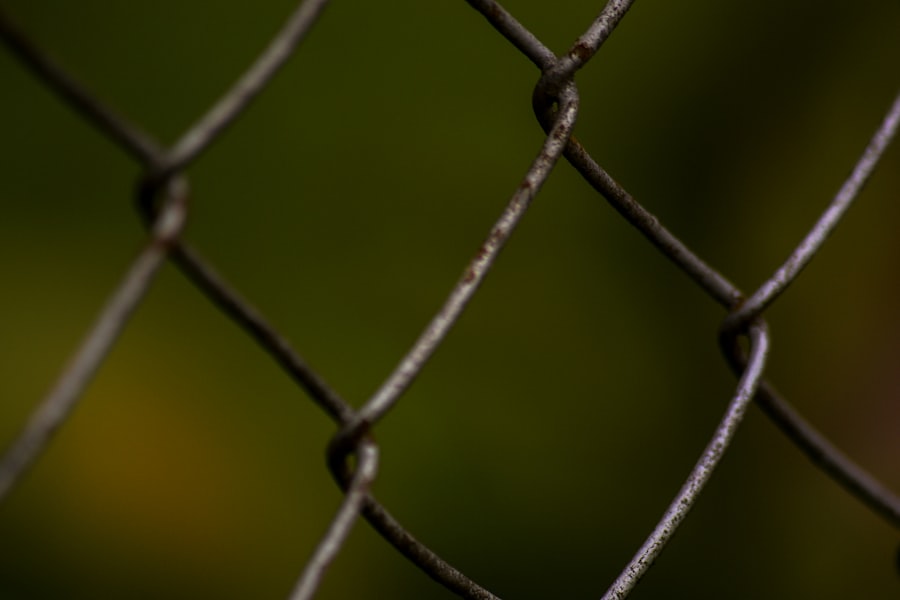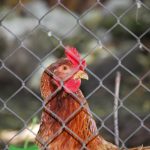Chickens are naturally curious and inquisitive creatures, often drawn to areas with loose soil, mulch, or freshly turned earth. They are also attracted to areas with a high concentration of insects, worms, and other small creatures that they can forage for. Additionally, chickens have a natural instinct to scratch and peck at the ground, which can lead them to disturb and damage flower beds and gardens.
Understanding these behaviors is crucial in finding effective ways to deter chickens from these areas. Chickens are also social animals and tend to follow the lead of the dominant members of their flock. This means that if one chicken discovers a particularly enticing area, others are likely to follow suit.
Additionally, chickens are creatures of habit and will continue to return to areas where they have found food or other attractions in the past. By understanding these behaviors, it becomes clear that deterring chickens from flower beds and gardens requires a multi-faceted approach that addresses their natural instincts and social dynamics.
Table of Contents
- 1 Creating physical barriers to deter chickens
- 2 Using natural deterrents to keep chickens away
- 3 Providing alternative areas for chickens to roam
- 4 Consistently enforcing boundaries with chickens
- 5 Seeking professional advice for persistent chicken problems
- 6 finding a balance between chickens and flower beds
- 7 FAQs
- 7.1 What are some effective methods for keeping chickens out of flower beds?
- 7.2 Are there any plants that can help deter chickens from entering flower beds?
- 7.3 Is it safe to use chemical deterrents to keep chickens out of flower beds?
- 7.4 How can I train my chickens to stay out of the flower beds?
- 7.5 Are there any legal restrictions on keeping chickens out of flower beds?
Key Takeaways
- Chickens are naturally curious and will explore their surroundings, including flower beds
- Physical barriers such as fences and netting can be effective in keeping chickens out of flower beds
- Natural deterrents like citrus peels, coffee grounds, and cayenne pepper can help keep chickens away from flower beds
- Providing alternative areas for chickens to roam, such as a designated garden or free-range area, can redirect their attention away from flower beds
- Consistently enforcing boundaries with chickens through training and reinforcement is key to maintaining a balance between chickens and flower beds
- Seeking professional advice, such as consulting with a poultry expert or animal behaviorist, can provide additional strategies for managing persistent chicken problems
- Finding a balance between allowing chickens to roam and protecting flower beds is possible with the right combination of physical barriers, natural deterrents, and alternative roaming areas
Creating physical barriers to deter chickens
Physical Barriers: A Simple Solution
One effective way to deter chickens from flower beds and gardens is to create physical barriers that prevent them from accessing these areas. This can be achieved by installing fencing or netting around the perimeter of the garden or flower bed. The fencing should be tall enough to prevent the chickens from flying or jumping over it, and the bottom should be buried or secured to the ground to prevent the chickens from digging underneath it.
Raised Garden Beds: A Practical Alternative
Another option is to use raised garden beds, which elevate the plants and flowers out of the chickens’ reach. Raised beds can be constructed using wood, stone, or other materials and can be an attractive and practical solution for keeping chickens at bay.
Chicken-Proofing Your Soil
Additionally, using chicken wire or hardware cloth to cover the soil in flower beds can prevent chickens from scratching and pecking at the ground, while still allowing water and nutrients to reach the plants.
Using natural deterrents to keep chickens away

In addition to physical barriers, natural deterrents can also be effective in keeping chickens away from flower beds and gardens. Chickens have a strong sense of smell and are sensitive to certain odors, so using natural repellents such as citrus peels, garlic, or vinegar can help deter them from entering these areas. These can be scattered around the perimeter of the garden or flower bed, or mixed with water and sprayed onto the plants themselves.
Another natural deterrent is the use of predator decoys or scare tactics. Placing decoy predators such as fake owls or snakes near the garden can create a sense of danger for the chickens and discourage them from approaching. Additionally, using noise-making devices such as wind chimes or motion-activated alarms can startle the chickens and make them wary of entering the area.
Providing alternative areas for chickens to roam
One way to prevent chickens from damaging flower beds and gardens is to provide them with alternative areas to roam and forage. By creating designated free-range areas with loose soil, mulch, and insect-rich environments, chickens are more likely to be drawn to these spaces instead of the flower beds and gardens. This can be achieved by designating a specific area of the yard for the chickens to roam freely, or by creating a separate enclosed space with features that mimic their natural foraging environment.
Another option is to provide chickens with supplemental food sources such as scratch grains or mealworms in a designated feeding area. By ensuring that the chickens have access to plenty of food and enrichment in their designated space, they are less likely to seek out flower beds and gardens as a source of sustenance and entertainment.
Consistently enforcing boundaries with chickens
Consistency is key when it comes to enforcing boundaries with chickens. Once physical barriers and natural deterrents have been put in place, it is important to consistently reinforce these boundaries to prevent the chickens from testing their limits. This may involve regularly checking and repairing fencing or netting, replenishing natural repellents, and ensuring that alternative areas for the chickens are well-maintained and stocked with food and enrichment.
Additionally, it is important to be vigilant in observing the chickens’ behavior and addressing any attempts to breach the boundaries. This may involve gently herding the chickens away from restricted areas, using verbal commands or gentle deterrents such as a spray bottle filled with water. By consistently enforcing boundaries with the chickens, they will learn that certain areas are off-limits and will be less likely to attempt to access them in the future.
Seeking professional advice for persistent chicken problems

When chickens become a persistent problem, it may be necessary to seek professional help. Despite using physical barriers, natural deterrents, and alternative roaming areas, chickens may still find their way into flower beds and gardens.
Expert Advice
In such cases, consulting a professional animal behaviorist or poultry expert can be beneficial. These experts can provide valuable insights into the specific behaviors and motivations of the chickens, as well as offer customized solutions to deter them from restricted areas.
Local Resources
Additionally, local agricultural extension offices or poultry organizations can offer resources and support to deal with persistent chicken problems. These organizations often have expertise in managing poultry behavior and can provide guidance on effective strategies for deterring chickens from flower beds and gardens.
Tailored Solutions
By seeking professional help and utilizing local resources, you can find tailored solutions to manage chicken behavior and protect your flower beds and gardens.
finding a balance between chickens and flower beds
In conclusion, finding a balance between allowing chickens to roam freely and protecting flower beds and gardens requires a multi-faceted approach that addresses their natural behaviors and instincts. By understanding the behaviors of chickens, creating physical barriers, using natural deterrents, providing alternative roaming areas, consistently enforcing boundaries, and seeking professional advice when necessary, it is possible to deter chickens from damaging flower beds and gardens while still allowing them to enjoy their natural behaviors. Ultimately, finding a balance between chickens and flower beds involves creating an environment that meets the needs of both the chickens and the plants.
By implementing effective strategies for deterring chickens from restricted areas while providing them with alternative spaces for foraging and enrichment, it is possible to coexist harmoniously with these curious and inquisitive creatures. With patience, persistence, and a proactive approach, it is possible to enjoy beautiful flower beds and gardens while still allowing chickens to roam freely in their designated spaces.
If you’re looking for ways to keep chickens out of your flower beds, you may also be interested in learning about the importance of providing a heater for a chicken coop. Check out this article to ensure your chickens stay warm and comfortable during the colder months.
FAQs
What are some effective methods for keeping chickens out of flower beds?
Some effective methods for keeping chickens out of flower beds include using physical barriers such as fences or chicken wire, using natural deterrents such as citrus peels or coffee grounds, and training the chickens to stay out of the flower beds.
Are there any plants that can help deter chickens from entering flower beds?
Yes, there are some plants that can help deter chickens from entering flower beds. These include plants with strong scents such as lavender, marigolds, and rosemary.
Is it safe to use chemical deterrents to keep chickens out of flower beds?
It is not recommended to use chemical deterrents to keep chickens out of flower beds, as these can be harmful to both the chickens and the plants in the flower beds.
How can I train my chickens to stay out of the flower beds?
You can train your chickens to stay out of the flower beds by using positive reinforcement, such as providing treats when they stay out of the flower beds, and by consistently redirecting them away from the flower beds when they approach.
Are there any legal restrictions on keeping chickens out of flower beds?
There may be local ordinances or regulations that restrict the keeping of chickens in certain areas, so it is important to check with your local authorities before implementing any methods to keep chickens out of flower beds.

Meet Walter, the feathered-friend fanatic of Florida! Nestled in the sunshine state, Walter struts through life with his feathered companions, clucking his way to happiness. With a coop that’s fancier than a five-star hotel, he’s the Don Juan of the chicken world. When he’s not teaching his hens to do the cha-cha, you’ll find him in a heated debate with his prized rooster, Sir Clucks-a-Lot. Walter’s poultry passion is no yolk; he’s the sunny-side-up guy you never knew you needed in your flock of friends!
Meet Walter, the feathered-friend fanatic of Florida! Nestled in the sunshine state, Walter struts through life with his feathered companions, clucking his way to happiness. With a coop that’s fancier than a five-star hotel, he’s the Don Juan of the chicken world. When he’s not teaching his hens to do the cha-cha, you’ll find him in a heated debate with his prized rooster, Sir Clucks-a-Lot. Walter’s poultry passion is no yolk; he’s the sunny-side-up guy you never knew you needed in your flock of friends!







